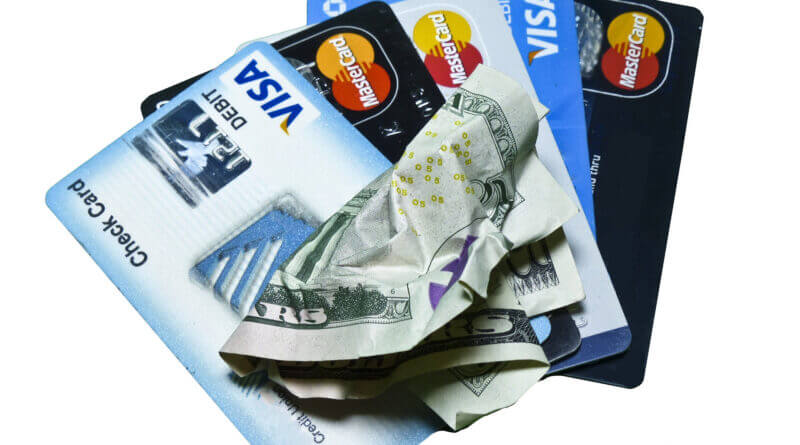Harris: How paying down debt affects your credit score
By Charlestien Harris
Paying off revolving debt, like credit cards, can help your credit score by lowering your credit utilization ratio. But be cautious because, closing the account you just paid off can temporarily lower your credit score and can also reduce your available credit limit. As an accredited financial counselor, I’m often asked questions like “How long will it take for my credit score to increase when I make a payment on my accounts?” or “When will I see an increase in my score?”.

The answer I most often reply with is it depends on when the creditor reports your information to the credit bureaus and how often. Your score changes constantly because new information is added to your credit file on a regular and steady basis.
However, I decided to do some additional research to help explain why your credit report often does not reflect your most recent payment, or your score remains the same longer than you expected.
There is nothing worse than actively trying to improve your credit score by paying down your debt and then pulling your credit report only to discover that your score has not changed. It can be frustrating not knowing if all that hard work has actually influenced raising your credit score or not! If you want to understand why there are delayed credit scoring cycles, then, we have to take a closer look at the credit card companies, banks, retailers and other lenders who provide the credit payment information to the credit bureaus.
Any change in your credit score after you have paid off debt is dependent on the reporting of the creditor. Normally creditors do so on a rolling basis, but you should know that creditors aren’t obligated to report anything to the credit bureaus, and the credit scoring cycle schedules at major creditors varies among them.
Most credit issuers report your payment activity on the first of the month regardless of when you made the actual payment. Off cycle reporting is when the creditor reports information to the credit reporting agencies in addition to or outside of their normal reporting schedule.
Each credit card company issuer or creditor that extends credit has different rules about how they report your debt or payments made and which bureaus they report to. Some use your statement balance on the date of closing, while others report your balance whenever it’s been paid in full (off cycle). Your score will be updated from the bureaus once they receive this data, but it’s not an exact science. Not all creditors report to all three bureaus. That is why all your accounts may not show up on all three of your credit reports.
Continuing to pay down debt and building a good credit history will help your credit score grow higher and faster. It will also allow you to increase your credit availability and receive better interest rates. Consistency is what creditors most often look for when determining your credit worthiness. You could see a difference in your score and creditworthiness within six months if you follow the steps I have outlined below.
- Pay your bills on time! I can’t stress enough the importance of paying your bills on time. Payment history makes up 35% of your credit score. Being late on a mortgage payment can seriously impact your score, but you can recover from that within nine months by making on time payments for at least six months. Filing for bankruptcy, on the other hand, could take five to ten years to get back to where you once were.
- Watch your credit utilization ratio! Credit utilization is another important factor to consider when trying to raise your credit score. Credit utilization refers to the amount of credit you have used compared with how much credit you have been extended by a lender. It also refers to a ratio that lenders use to determine your creditworthiness. It is often measured by percentage of use and keeping your usage rate at 30% or less is often recommended. Your payment history and credit utilization rate typically account for 60% to 70% of a credit score, according to Experian.
- Fix the errors you find on your credit report! Fixing errors on your credit report is another move you can make to improve your score. If you don’t have an installment loan (auto loan, mortgage, or other) on your credit report you should. Credit score formulas love to see diversity or a good credit mix in computing your credit score.
- Limit opening new lines of credit! Opening a new line of credit lowers the average age of your credit accounts, which can lower your credit score. Also opening new lines of credit can trigger a hard inquiry, which can cause your score to drop slightly. When you are trying to raise your credit score, keeping down the number of inquiries is another positive step to raising your score.
Credit Bureaus comb through detailed information and analyze credit reports to evaluate how you manage using credit. Paying down debt is just one of the factors that credit bureaus use to determine your credit score. They focus on factors such as your payment history, your total debt, usage of available credit, length of credit history, credit mix and new credit. Make sure you pay close attention to each of these factors, and you will definitely see a change in your score that can be positive.
For more information on this and other financial topics you can email me at Charlestien.harris@banksouthern.com or call me at 662-624-5776. You can also receive additional information by visiting our financial blog at www.banksouthern.com/blog/.
Until next week, stay financially fit!
Charlestien Harris is our financial contributor, a financial expert with Southern Bancorp Community Partners whose articles are seen in a number of publications around the region.






